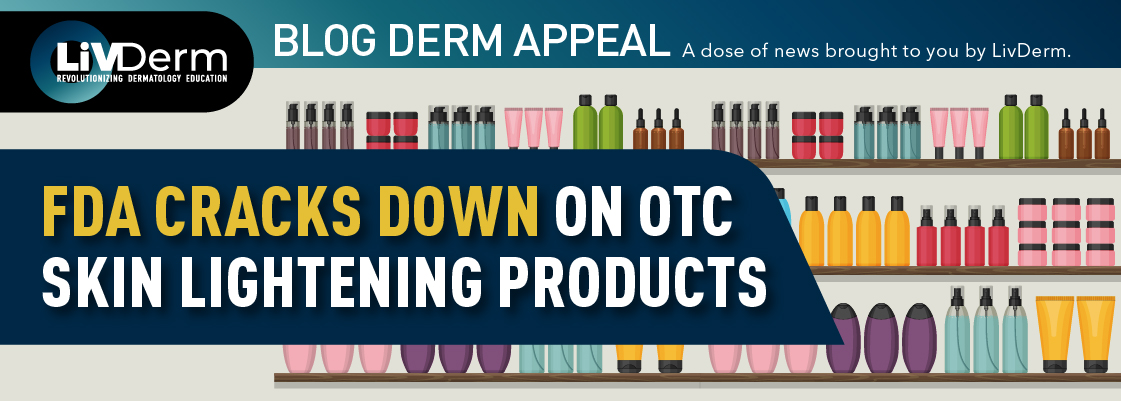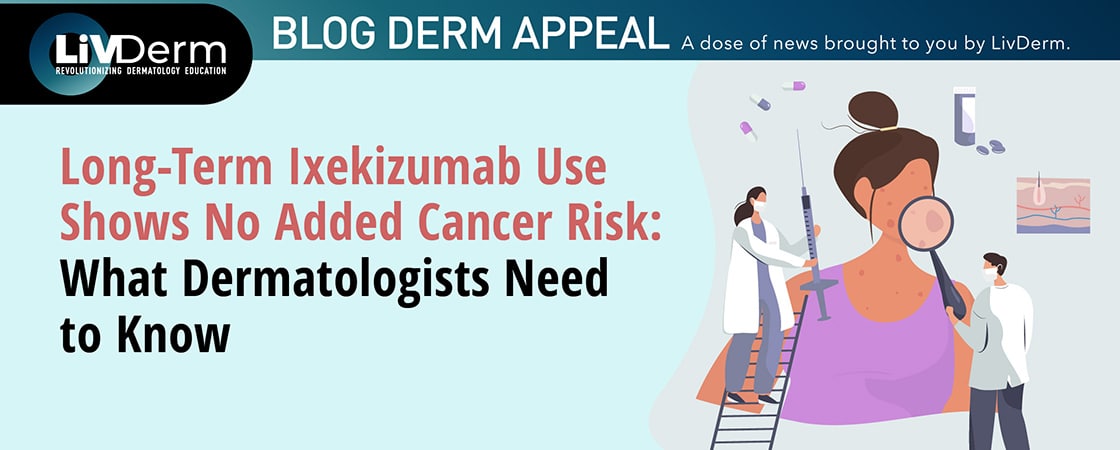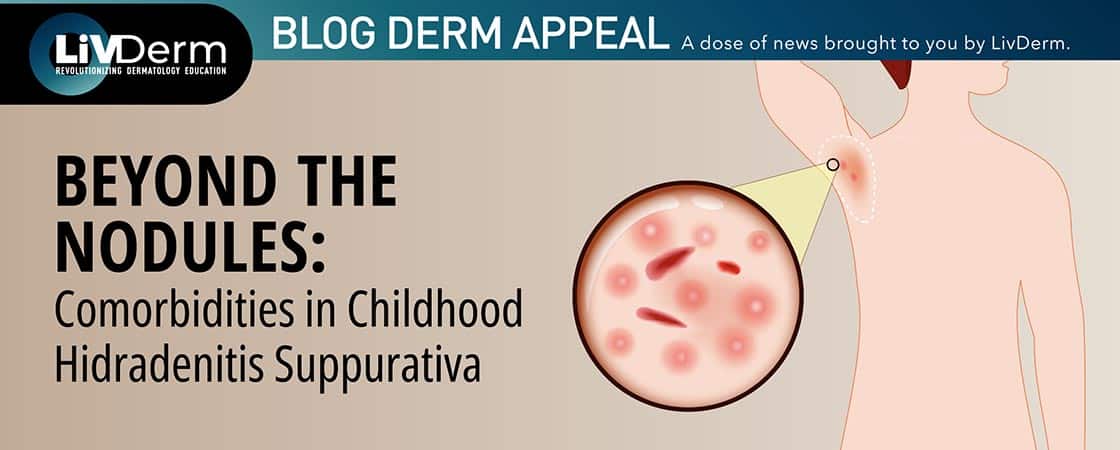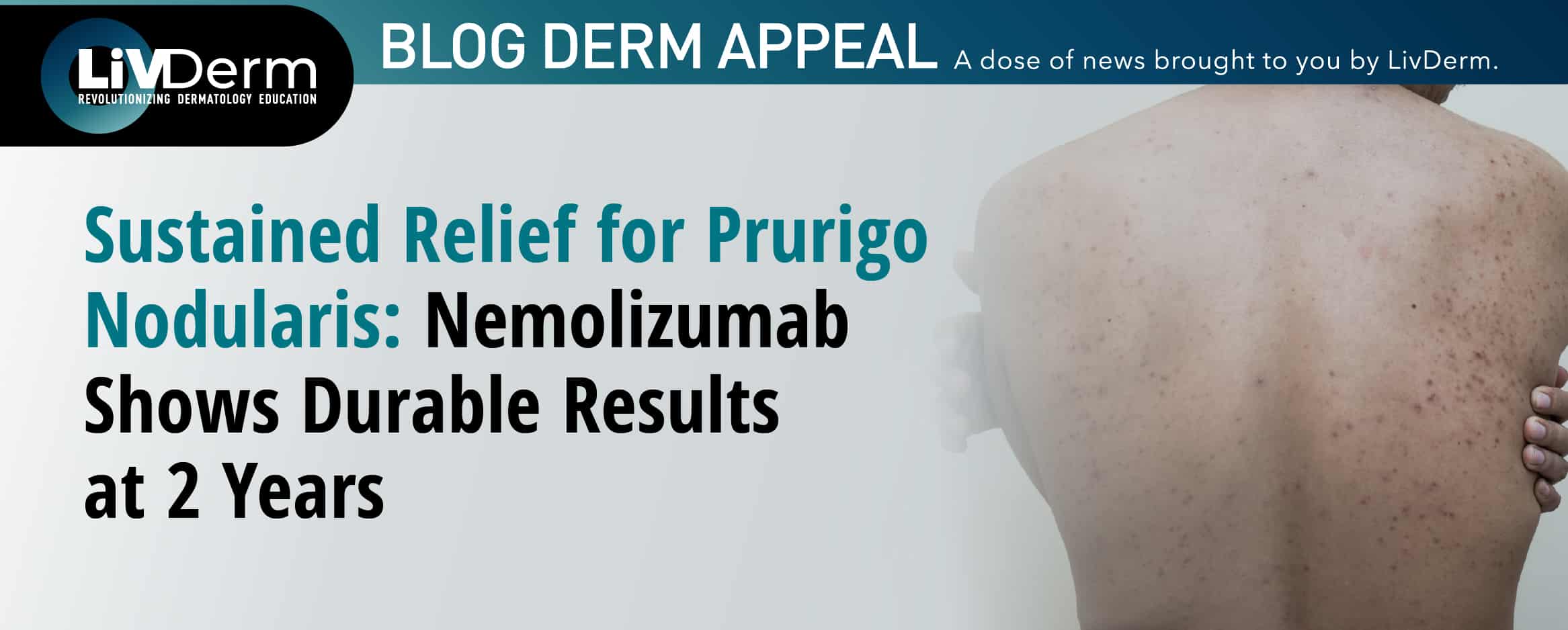The U.S Food and Drug Administration (FDA) recently issued warning letters to 12 companies selling over-the-counter (OTC) skin lightening products. The active ingredient in these products is hydroquinone, a chemical compound that acts as a bleaching agent. The letter states that the products are unapproved new drugs and not considered generally regarded as safe and effective (GRASE). They therefore do not meet the requirements to be sold legally as OTC drugs.
What is hydroquinone and what is it used for?
Put simply, hydroquinone is a chemical with skin-lightening capabilities. It is naturally occurring in a variety of plants and also has antioxidant properties. After its discovery in the 1800s, it was primarily used as a photographic developer. Its bleaching properties came to light decades later and were quickly followed by various research studies. It was found that hydroquinone effectively interferes with melanin (the body’s natural skin pigment) production. It has since been used as the main ingredient to treat hyperpigmentation (darker areas of skin), such as sun spots, age spots, freckles, melasma, as well as post-inflammatory marks caused by psoriasis and other skin conditions.
Side effects of hydroquinone
As with any medication, side effects may occur when using products containing hydroquinone. These include burning, stinging, redness or other irritation. However, the FDA has also received reports of more serious side effects such as skin rashes, facial swelling and exogenous ochronosis (a bluish-black skin discoloration) which may be permanent. These concerns have prompted the FDA to advise the public not to use OTC skin lightening products, stating that there is no FDA-approved skin lightening drug available without a prescription. Currently, the only FDA-approved drug containing hydroquinone is fluocinolone for the short-term (up to eight weeks, only) treatment of dark spots caused by melasma of the face, which should be used only under careful supervision of a health care professional.
Delayed crackdown and the CARES Act
Despite letters sent in April 2022, the concerns surrounding hydroquinone have been ongoing for a number of years. In 2006, the FDA proposed a ban on OTC skin lightening products after animal studies showed some evidence hydroquinone may act as a carcinogen (cancer-causing chemical). The FDA monograph for OTC products still however allowed these products to be marketed in the meantime, given that the monograph remained pending.
The Coronavirus Aid, Relief and Economic Security (CARES) Act of 2020, included important reforms in the way OTC drugs were regulated, and effectively withdrew the hydroquinone ban from its state of limbo. Under the CARES Act, any drug with no final monograph and which was not considered GRASE would require an FDA approved new drug application before it could be legally marketed. This in itself is a costly and lengthy process. The companies in receipt of this letter have been given 15 days to provide feedback on what they have done to address the violations laid out.
Culture of ‘lighter is better’
Unfortunately, there still exists a culture of ‘lighter skin is more beautiful’ and OTC skin lighteners continue to be popularized as a means for people with darker complexions to lighten their skin tone. Renowned dermatologist and LiVDerm faculty Seemal R. Desai, MD, believes that although bleaching creams can be safely used under the direction of a board-certified dermatologist, there remains concern about the use of these products to change an individual’s color complexion.
“It’s going to take time to change these deeply-rooted cultural values and psychological associations with lighter skin tones; however, we want to educate patients about the dangers of skin bleaching strictly for the sake of achieving lighter skin and encourage them to talk with their dermatologist so that we can begin changing this dialogue.” Dr. Desai says when speaking of unregulated skin lightening products that can be bought online or find their way into the U.S from other countries. These products may contain high concentrations of hydroquinone as well as other ingredients which may pose significant risks to users. Dr. Desai also mentions cases of exogenous ochronosis, which he says can appear after long-term use of skin bleaching creams containing hydroquinone. Dr. Desai strongly encourages people to consult with a dermatologist in relation to any pigmentary skin conditions they are concerned about.
Key takeaway
Although opinions differ over the FDA’s recent ruling, one of the key issues highlighted is that OTC skin lightening creams may be used without the direct supervision of a health care professional. As a result, there is no control over how long a person uses the product and they may be increasing their risk of adverse side effects without even realizing it. Any adverse reactions should be reported to MedWatch, FDA’s online voluntary report form.
Sources:
- https://www.medscape.com/viewarticle/972407#vp_1
- https://www.fda.gov/drugs/drug-safety-and-availability/fda-works-protect-consumers-potentially-harmful-otc-skin-lightening-products
- https://www.aad.org/news/dangers-skin-bleaching-to-achieve-lighter-complexion
- https://www.drugs.com/fda-alerts/1295-0.html
- https://www.fda.gov/inspections-compliance-enforcement-and-criminal-investigations/warning-letters/elements-brands-inc-628380-04132022
- https://www.aocd.org/page/Hydroquinone
- https://www.medicinenet.com/fda_proposes_hydroquinone_ban/views.htm
- https://www.govinfo.gov/content/pkg/FR-2006-08-29/pdf/E6-14263.pdf
- https://aedit.com/aedition/giude-to-hydroquinone

















